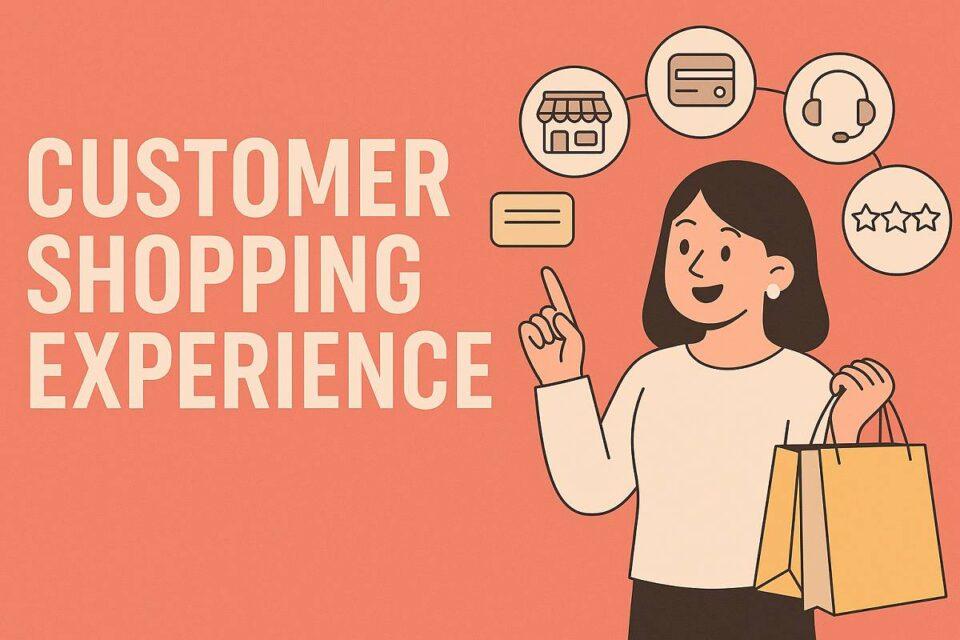Since the online world is everywhere around us, we need to start by taking a deeper dive into every aspect. From snagging the latest kicks to ordering midnight snacks, the internet’s got your back. But here’s the thing: with so many options out there, shoppers have gotten super picky. The customer mostly always knows what they want and if that is something your store cannot offer, they will find a better store!
If you think about it logically, no user tends to stick around for more than two seconds if your page takes a while to load. People prefer instant gratification, and due to lack of time or patience, if you are making someone wait then you are bound to lose them sooner. So it is very crucial that your site isn’t slow and confusing to navigate. Otherwise you are bound to lose customers as well as sales.
Understanding the Shopping Experience: What Customers Really Want
- Speed is King: Nobody’s got time for a sluggish website. If your pages take forever to load, customers are outta there. Simple as that.
- Easy Navigation: Ever landed on a site and couldn’t find what you were looking for? Frustrating, right? Shoppers want a smooth, no-hassle browsing experience.
- Mobile-Friendly Design: We’re all glued to our phones these days. If your site isn’t optimized for mobile, you’re turning away a massive chunk of buyers.
- Personalized Experience: People love when a site remembers their preferences, recommends stuff they might like, and makes the whole thing feel more “them.”
- Trustworthiness: With scams all over the internet, customers want to know their info is safe. Security and transparency go a long way.
- Simple Checkout Process: Make the checkout process for your customers as smooth as possible. They should almost be able to jump through the purchasing process, otherwise they will have time to reconsider.
Delivering the Best Shopping Experience
Now that we know what shoppers want, how do we give it to them? Here’s what’s worked for me:
#1. Optimize Your Website’s Performance
First things first: speed. If your site is moving like a snail, it’s game over. We made sure to compress images, enable caching, and even upgrade the hosting. The result? A much smoother experience that kept users on the page longer.
#2. Intuitive Navigation and Search Functionality
Your site should be as easy to navigate as your favorite café. Clear categories, a visible search bar, and smart filters make all the difference. It is common to lose a sale just because a product is buried under five irrelevant categories. Lesson learned.
#3. Mobile Optimization
More than half your visitors shop from their phones. So you gotta go all in with a responsive design. Whether it’s an iPhone or an Android tablet, the layout adapts, loads fast, and stays clean.
#4. Personalized User Experience
Here’s where things got fun. Using behavior-based data, you can show users products they were actually interested in. It felt like you’re giving each customer their own shopping assistant. Conversions went up—no surprise there.
#5. Build Trust with Your Customers
This was non-negotiable. By adding SSL, displaying trust badges, clearly outlining return policies, and making reviews visible right under the product. Sales? They definitely reflected the effort.
#6. Simplify the Checkout Process
You must trim it down—fewer form fields, a guest checkout option, and support for multiple payment methods. It makes a huge difference. Abandoned carts dropped significantly.
#7. Enhance User Registration with Custom Fields
This part was a game-changer for most store owners, using the Custom User Registration Fields for WooCommerce plugin enables you to add fields like product preferences and favorite categories during sign-up. Now, every marketing email feels personal and targeted. Plus, reorders will be smoother since you already know what they like.
#8. Utilize Effective Tools and Plugins
There are plugins for everything, but the trick is picking the right ones. Chatbots? A must. Analytics tools? Crucial. You should integrate tools that improve response time and give you real insights into shopping behavior.
#9. Focus on UI/UX Design
Clean. Simple. On-brand. That should be your motto. Ditch clutter, use bold visuals, and make the call-to-action buttons pop. People started spending more time browsing—and buying.
#10. Stay Updated with Trends
Whether it’s AR try-ons, one-click purchases, or sustainable packaging, try to stay a step ahead. In 2025, eCommerce is moving fast. Adapting early to trends will keep your store feeling fresh and competitive.
The Importance of This in 2025
Let’s be honest—shoppers in 2025 expect more than ever. They don’t just want good deals; they want an experience. Whether it’s lightning-fast checkout or tailored product recommendations, standing out in today’s saturated market means going above and beyond.
Final Thoughts
Look, eCommerce is a competitive game. However, once you understand what your customers want and give it to them using the right tools, a better performing site, smarter navigation, and some minor personalization touches, you will thrive! Survival will become a trivial concern, all you need to do is play smart and follow some basic guidelines.
So if you’re thinking about upgrading your online store’s shopping experience, don’t wait. Make the switch now. You’ll thank yourself later (and so will your customers).



